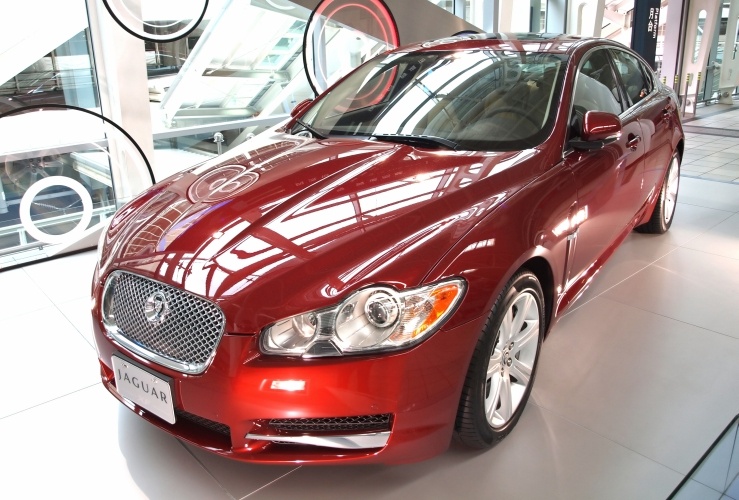
Jaguar XF (shiyali/Bigstock.com)
The month of April saw car sales plunge by nearly 20%, following reductions to green car grants and price increases.
Month on month new car registrations dropped to 152,076, driven by lower diesel sales, but also by falls in hybrid and electric car sales.
Demand for so-called green cars had not fallen for four years, demonstrating the effectiveness of government subsidies.
The Guardian reports that Samuel Tombs, the chief UK economist at Pantheon Macroeconomics, said the car industry could decline for the remainder of the year. Tombs pointed out that car price increases of 2.9% were ahead of inflation, which stands at 2.3%.
Consumer confidence, pressure on wages and a reduction in the availability of unsecured credit have all negatively impacted the purchasing of big ticket items, said Tombs.
Diesel sales fell the most, prompted by looming city centre bans and possible further increases in duties.
Tombs suggested that the fleet car buyers were keeping the industry going, while private buyers fell by the wayside.
Cars built overseas are also now more expensive due the weaker pound following last year's Brexit vote. Meanwhile, some UK car makers are considering moving production abroad if the government fails to strike a favourable trade deal.
While April’s car sales are the lowest for five years, the Society for Motor Manufacturers and Traders, which collects the sales data, put a more upbeat spin on the figures. They point out that car sales over the first four months of the year are still 1.1% better than the same period last year; 2016 saw record sales of 972,092.
Mike Hawes, SMMT chief executive, said: “It’s important to note that the market remains at record levels as customers still see many benefits in purchasing a new car. We therefore expect demand to stabilise over the year as the turbulence created by these tax changes decreases.”





